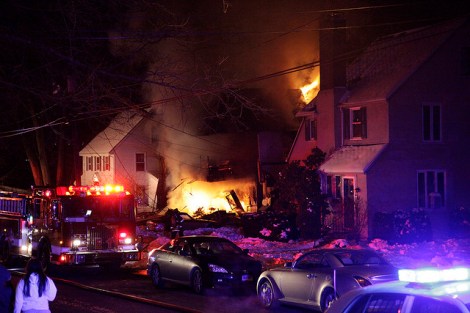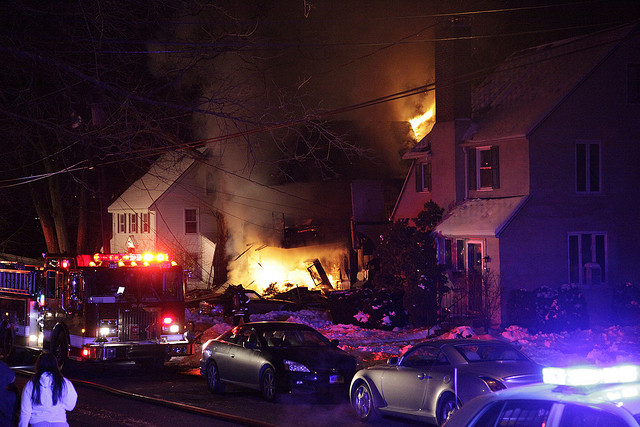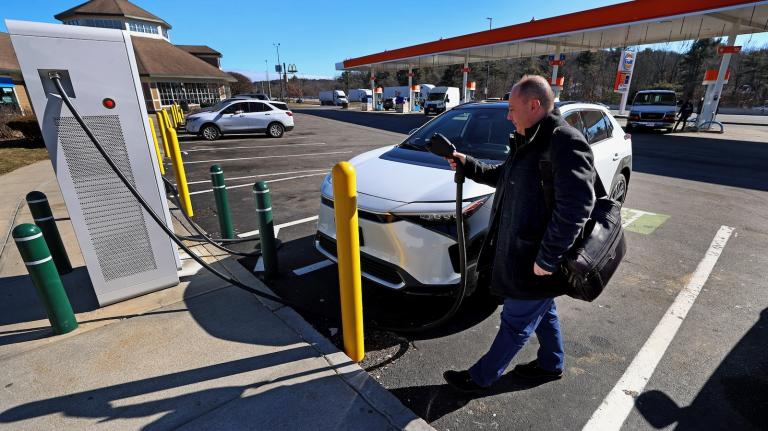Just FYI, Bostononianites, there’s a natural gas leak under your city. Not a big deal. It’s a little one. Little small little natural gas leak.
And a tiny bit of additional bad news — there are also over 3,300 other such leaks.
From The Boston Globe:
Natural gas is escaping from more than 3,300 leaks in Boston’s underground pipelines, according to a new Boston University study that underscores the explosion risk and environmental damage from aging infrastructure under city sidewalks and streets.
The vast majority of the leaks are tiny, although six locations had gas levels higher than the threshold at which explosions could occur. Although there have been no reports of explosions in Boston from any of the leaks, the study comes three years after a Gloucester house exploded probably because of a cracked and corroded gas main dating to 1911.
Happily, no one was killed in that explosion, but the owner of the home suffered burns and lacerations.

aarghjThe remains of a house explosion, which can also happen in places other than Boston.
I’m going to play devil’s advocate here and wonder if maybe natural gas pipelines should not be around to celebrate their centennial birthdays. I understand that building new infrastructure under Boston can be tricky, but it’s maybe worth a shot. The gas company agrees.
A spokesman for National Grid, the predominant gas distributor in Boston, said it does not make sense to repair all the minor leaks if they are not causing a safety problem. Rather the company is working to replace aging pipes with more flexible plastic pipe as quickly as possible, at a rate of about 150 miles a year in Massachusetts. “It’s a better course of action,” said David Graves, the spokesman, adding that National Grid investigates every report of a gas odor — actually the rotten egg smell of mercaptan, an odor added to odorless gas. …
About 9 billion cubic feet of natural gas was unaccounted for in Massachusetts gas distribution system in 2010, which includes leaks, thefts, and purging of pipelines for maintenance, according to federal energy statistics.
Again, devil’s advocate: You should probably not steal natural gas, for a variety of reasons.
The Globe also provided a helpful map of the leaks, including those it calls “big.” It did not, however, identify where those six could-cause-an-explosion leaks are, presumably because who wants to worry about that when they’re getting ready to cook a delicious Thanksgiving dinner?
Devil’s advocate: Maybe everyone in Boston should just eat canned, cold food this year? Maybe no open flames. Something to think about.



